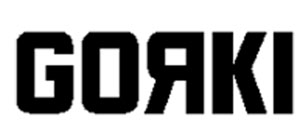Gorki sahnesi 1915’i anlatacak


Tiyatroda biçim tartışmalarının şiddetlenerek ve yoğunlaşarak ilerlediği 20. yüzyılda, tiyatro sahnelerinde, neredeyse her yıl yeni bir akım ortaya çıktı. Bu akımların en önemlilerinden biri, politik tiyatronun babası olarak kabul edilen Bertolt Brecht’in epik tiyatrosudur. Brecht’in, 1949’da eşi Helene Weigel ile beraber, Spree Nehri’nin kenarında ‘Berliner Ensemble’ı kurmasının ardından, bu topluluğun savunduğu fikirlere karşı bir tiyatro grubunun oluşması uzun sürmez. Brecht’e karşı, 1952’de, Rus yazar Maxim Gorki’nin başta edebiyat için ürettiği ‘sosyalist gerçekçilik’ fikrini ve buradan doğan akımı tiyatro sahnesine taşıyanlar tarafından, ‘Maxim Gorki Tiyatrosu’ kurulur. Günümüzde tiyatro akımları arasındaki ayrımlar giderek azalırken, Avrupa’nın en önemli iki politik tiyatro sahnesi, kuruldukları günden beri, ‘halk için sanat’ yapıyor. Bu bağlamda, Gorki Tiyatrosu’nun, bu yıl Mart ve Nisan ayı programını Ermeni Soykırımı’nın 100. yıldönümüne ithaf etmesi, şaşırtıcı değil ama çok önemli bir gelişme.
7 Mart - 25 Nisan arasında, ‘Nisan’da kar yağar: Bir Tutku ve Paskalya’ başlıklı program kapsamında, tüm dünyadan çok sayıda sanatçı ve akademisyen, Ermeni tarihi ve hayatta kalma konusunu kendi bakış açılarıyla sunmak üzere Berlin’e davet edildi. 40 günden fazla sürecek bu etkinlikler dizisinde, tiyatro oyunları ve performansların yanı sıra, film gösterimleri, konserler, konferanslar ve konuşmalar da yer alıyor.
 Programda öne çıkanlar
Programda öne çıkanlar
7 Mart’ta, gazeteci Harout Ekmanian’ın yapacağı açılış konuşmasıyla başlayacak olan programın ilk gününde, yönetmen Hans Werner Kroesinger’in, Franz Werfel’in ‘Musa Dağ’da 40 Gün’ adlı romanından uyarladığı ‘Musa Dağ: Direniş Günleri’ adlı projesinin galası öne çıkıyor. Kroesinger’in, 2007 yapımı ‘History Tilt’ adlı oyunu da, bu program için 12 Mart’ta yeniden sahnelenecek. Oyun, Soğomon Teyleryan’ın, 1921’de Talat Paşa’yı öldürmesini konu alıyor.
Açılış gecesi, Türk-Ermeni ve Alman bir aileden gelen, Anadolu ezgilerini cazla yorumlayan Marc Sinan’ın, ‘Gomidas ne kadar Osmanlı’ysa, ben de o kadar Avrupalıyım’ başlıklı, yarı belgesel - yarı kurmaca müzik tiyatrosu izleyiciyle buluşacak. Etkinlikler kapsamında, Arto Tunçboyacıyan ile, Ara ve Onnik Dinkjian da Berlin’de konser verecek.
Film yönetmeni Fred Kelemen’in, dünyanın her yerinden topladığı, Ermeni Soykırımı’yla ilgili filmler ‘Sesleniş: Sinemasal bir Anıt’ başlığı altında sunulacak. Bu filmler arasında, 1919 yılından, ilk soykırım filmi olarak bilinen ‘Ravished Armenia’ da (Irzına Geçilen Ermenistan) var. ‘Aurora’ adlı video enstalasyonu Berlin’de ilk kez izleyiciyle buluşacak olan Atom Egoyan’ın ünlü filmi ‘Ararat’ da programda yer alıyor.
Berlin’e davet edilen isimler arasında Kanadalı oyuncu Arsinée Khanjiyan, dansçı Mihran Tomasyan, yönetmen Lusin Dink ve Anadolu Kültür Yönetim Kurulu Başkanı Osman Kavala da var. Arjantinli Ermeni sanatçı Silvina Der-Meguerditchian’ın küratörlüğünde hazırlanan sergi de, program boyunca ziyaretçilere açık olacak.
Program kapsamında, 24 Nisan’da, 23 Nisan 1915 gecesi evlerinden toplanan 235 sanatçı ve entelektüelin adları, şarkıcı Kim Seligsohn’ın performansı eşliğinde hatırlanacak.
"Almanya bu tarihinbir parçası"
Gorki Tiyatrosu, bu anma etkinliğini düzenlemesinin nedenini şu sözlerle açıklıyor:
“Hükümet, geçtiğimiz günlerde, sol bloğun yönelttiği soru önergesine cevaben, Ermeni Soykırımı’yla ilgili olarak resmî bir anma etkinliği yapılmayacağını açıkladı. Hükümete yöneltilen yazılı önergede, 1915’te Alman İmparatorluğu’nun, Ermenilerin yok edilmesinde ‘utanç verici bir rol’ aldığı söylenmiş, savaşta müttefik olan iki imparatorluğun aynı zamanda sırdaş oldukları da belirtilmişti. Önergede, 2005 yılında alınan meclis kararına da atıfta bulunuluyordu. Bu kararda, ‘çok sayıda tarafsız tarihçi, meclis ve uluslararası kuruluş, Ermeni tehcirini ve Ermenilerin yok edilmesini soykırım olarak nitelendirmektedir’ ifadesinin yer aldığı hatırlatılmıştı. Bunun üzerine, hükümet, 100. Yıl anmalarının ilk etapta Türkiye ve Ermenistan’ı ilgilendirdiği konusunda ısrar ederek, bir anma düzenlenmeyeceğini belirtti.
Almanya tarihinin bir parçası olan bu soykırımda, Almanya İmparatorluğu’nun ne derecede müdahil olduğu, bir sırdaş olarak mı yoksa soykırımın kısmen destekleyicisi olarak mı yer aldığı, bugün hâlâ tartışılıyor. Böyle bir programla, bu çıkmazın ve zorlu tartışmanın içyüzünü anlamaya çalışacağız.”


